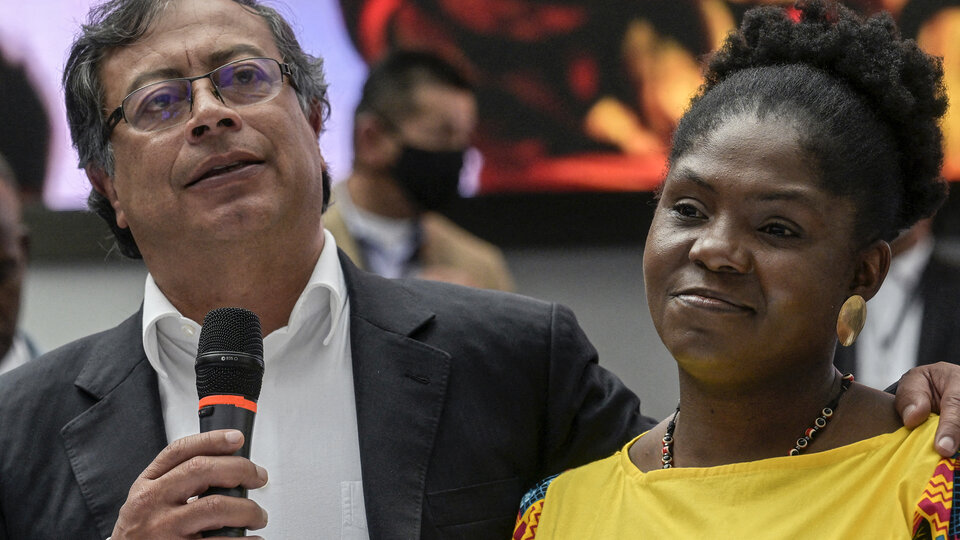
The word “change” is used so much that for many people it means nothing.
The term was emptied of content as it was used as a recurring slogan in every election dispute. Some and others tout it to woo disaffected voters. However, later, when the moment of truth arrives, the moment of judgment, the change fades. And everything will be in a Lampeducian transition, meaning nothing will change.
For a rule to exist, an exception is always necessary. He also acts Gustavo Pedro And Marquess of France Inside Colombia.
During all the months of the election campaign they promised that their proposal was change and now, having won the election with majority support, they want to govern for change.
They do it.
Only those who didn’t vote for him are surprised.
In the first semester of the Presidency, together with Francia Márquez as Vice President, he made changes in the most important program axes: a) Foreign policy changes Inauguration etc A new relationship with its neighbor Venezuelab) Changes Tax policyEliminating benefits (multi-million dollar exemptions) for the wealthiest in the country, c) making changes to strengthen the public health system and ending abuses in the private sector, d) Changes in the peace processe) Changes so that youths arrested for social protests of 2021 will no longer be in jail, f) Make the pension system fair and free of deductions, g) and changes to Labor Law, With the aim of expanding rights and ending the injustices of the neoliberal paradigm. And, of course, more and more changes will come, because Petrov himself declared that “change cannot be created” and Marquez said “we change this country because we change it”.
After this period of government, with all these changes in motion, Pedro’s value is very high. According to data from the latest CELAG survey conducted in February (2,158 cases nationwide), half of the population approves of his administration and has a positive image of the president. He is the second most prestigious president in Latin America after López Obrador (Mexico).
Francia Márquez also has a good positive rating (48%).
By looking specifically at what the public thinks about each of the axes of change, there is a significant majority in favor of them (ranging from 40% to 60% depending on each issue).
In fact, when the public is asked if Colombia is changing or staying the same, there is a majority (50.3%) who choose the first option.
That doesn’t mean all is well. But all is not as bad as it is usually made out to be in big headlines by some media outlets.
In this sense, one information speaks for itself: 74% of Colombians believe that the media misrepresents and manipulates reality at their convenience.
In conclusion: In Colombia, despite the difficulties, its new president is redefining the word change, prioritizing his beliefs and loyalty to do everything possible to leave an entire country full of injustices to the same people who supported him in the elections.
Alfredo Serrano Mancilla is director of Celac, PhD in Economics.

“Introvert. Thinker. Problem solver. Evil beer specialist. Prone to fits of apathy. Social media expert. Award-winning food fanatic.”





More Stories
Two influencers drown after refusing to wear life jackets: “ruining selfies”
Uruguay 2024 election results: who won and when is the second round | Waiting to know whether there will be a runoff or not
Uruguay: Lacalle Pou leaves with his figure on the slopes | The Marcet and Asteziano scandals hit the right-wing ruler